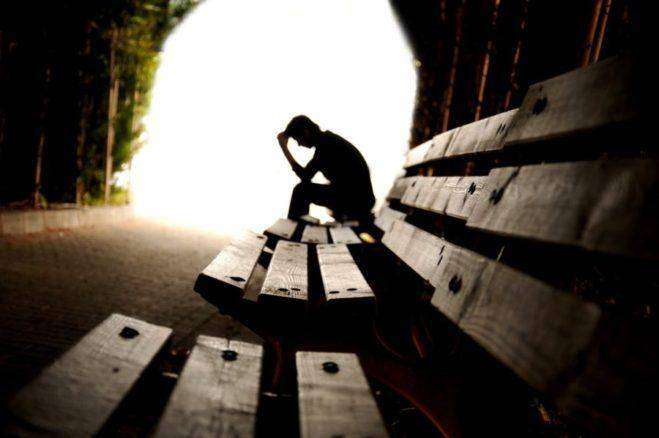
How to Avoid Trouble When Traveling (and in life in general) – Stay tuned with your mental health
This article is an extension to the topic of the risks of traveling. There we discussed the specific risks you should be aware of when traveling, and methods of dealing with each of those risks. With this article I’ll recommend some key universal rules, which form the basics of how to avoid trouble when traveling. These rules apply to many aspects, such as health, personal security, securing your belongings and injuries. After I finished writing the article, I realized that most of these rules can also be applied for life in general.
Don’t look for trouble and it won’t find you
This sounds very simplistic, but it’s also very true. You are the only one who decides on the amount of risks you’re taking, and the level of those risks. You should only take risks if they offer great rewards, and try to limit those to the absolute minimum. If you travel long term, take into account that if you are consciously taking risks, statistics will catch up with you in the end. Personally, I take less risks than the average person, and I may even be considered dull. But I like my current way of long-travel life so much, that I’m willing to sacrifice to maintain it.
Trust your intuition
We all possess the natural gift of knowing if something is wrong. Nothing is stronger than our intuition. Listen to your initial thoughts and feelings. Minimize the influence of noises while taking decisions, mainly social pressures, ego, or your own self-doubt and depression. This is especially important while traveling, since there many situations where you don’t have any information, and intuition is all you’ve got. Connecting with your intuition is a skill that’s needs to be learned and mastered. Listen to yourself.
Research and Prepare
Intuition is important, but information is power. In order to avoid troubles, you should consciously dedicate time and energy to research and preparing for situations accordingly. This is especially relevant to traveling, when you don’t have all of the information which puts you in a vulnerable position. Aspire to know where you are, and gather information to recognize the relevant risks of that location. Spending time on getting familiarized with the mindset and the culture is a valuable bonus as well. This means that you have to spend some time on Google, speak to people, be curious, go to forums specific to your travels, read blogs and listen to podcasts. Take the time you need to gain all of the information possible, and it will not only make your travels safer, but also more enjoyable.
Spend on Safety
This applies to both money and time. Don’t be cheap with your most important assets – your health and safety. For example, if you have to spend more money on a better bus company, on a dangerous road, do it. Let go of the mentality of “everything will be ok”, and spend the resources to boost your safety when it makes sense. If you have to spend more time or extra money to avoid a risky position, or get out of a bad situation, spend it with joy and pride.
Stay Calm
Losing control, getting upset, angry and depressed takes away your good judgment. It can put you in danger if you meet the wrong people. Losing control, mainly with anger, will usually lead to clashes that put your safety at risk. So always try to be the best version of yourself.
Stay Focused and Aware
Be aware of your surroundings, your belongings, and where you are. Drifting away is good and sometimes even recommended, for example, when you’re meditating. But sometimes you just have to be in conscious control of the situation, especially in a place that’s completely new to you. Being aware and attentive will allow you to respond quickly and intelligently to different circumstances. It can even help you avoid problems, and sense that something is wrong and should be dealt with. So don’t daydream on the move.
Prepare for Bad Periods
Have a backup plan. This applies to putting aside money, having people who can help in time of need, and having health insurance in case things go wrong. Don’t be an optimistic, or a pessimist. Be a realist. This will not only allow you to deal with a bad situation, but will also keep you calm knowing that things can go wrong, and you will still be fine. Having insurance and plan B thus improves your decision making and feeling of independence.
Listen to Yourself
Your emotional and mental health is just as important as your physical health, and can break down at any point. Listen to yourself. If your soul signals that something is wrong, it might be time for a change. Change can mean many things. Stop moving all together, move faster, slow down your pace of moving, leave immediately, find company and stop being alone, separate from someone in your life. There are many solutions, some completely opposite to the others – but you have to pick the one that works for you. Don’t ignore your pain and sadness, try to analyze it and see what needs changing. Being on the road in a poor mental state can create a toxic experience.
Pay Attention to Past Problems
We’re human, and all of us have our bad habits, weaknesses and health problems. Our weaknesses and break points tend to repeat themselves. If you’ve had a problem in the past, especially if it happened more than once, chances are that it’ll happen again. As the saying goes – fool me once, shame on you; fool me twice, shame on me. Be aware to of your weakness, set rules to avoid it and prepare in advance to another occurrence.
Accept
Bad things will happen even if you’re the smartest person in the room. That’s a part of the human experience. Deal with a problem not from a victim perspective, but from a power position. Accepting your problems as part of life, can actually help you solve them faster (and turn you into a semi-God while handling them).
That was a quick overview of things you can do to make travel and life’s problems less frequent and painful. All the best, and stay out of trouble.



Every day we think about trouble, but i`ve never thought about this like that “Don’t look for trouble and it won’t find you”. Thanks for advices!!!